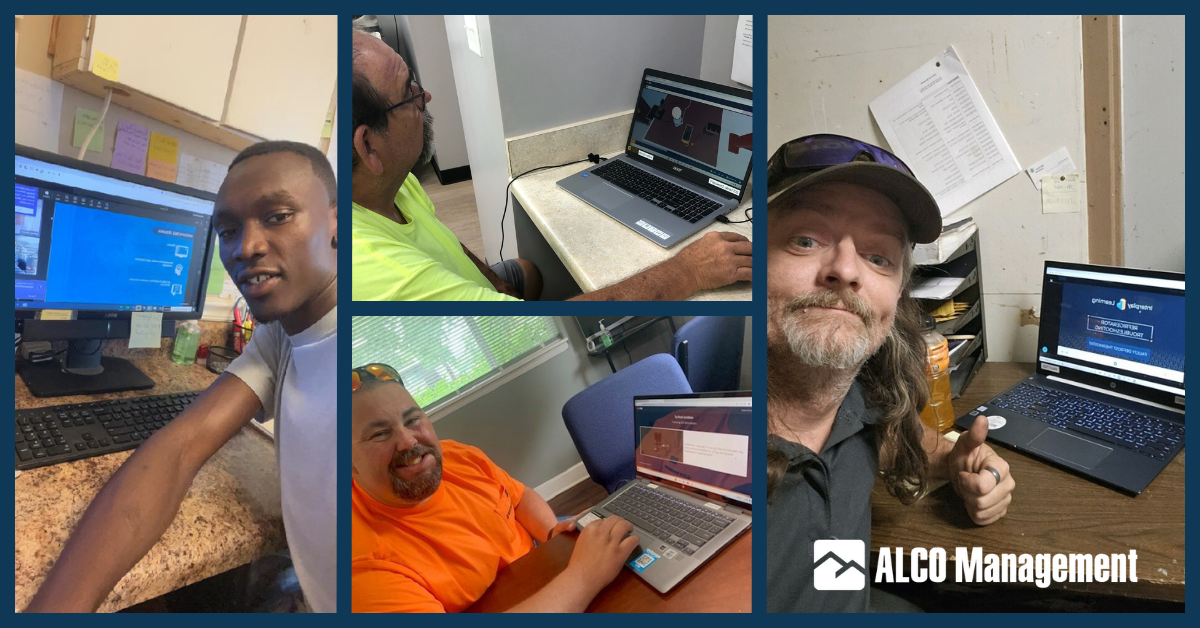ALCO Management is a well-established property management company located in Memphis, TN. With over 40 years of experience in the affordable housing industry, ALCO successfully manages more than 6,000 apartment homes in nine states.
Ebonye Edwards is the dedicated Director of Learning and Development at ALCO, and below, she shares her journey of implementing SkillMill into their maintenance training program to gain adoption and transform their approach to technical training.
Planning and Setting the Stage for Learning
We started our journey with Interplay in January 2023, purchasing 70 seats to train our maintenance workforce.
Before SkillMill, we lacked a formal technical training program, providing only safety courses through our Learning Management System (LMS). The pressing labor shortage required us to find a solution to train technicians without prior experience, and since our maintenance team consisted of employees with various skill sets, we needed a plan for both our existing and new employees.
To tailor the learning experience, we started off by sending Interplay our top 20 work orders to identify the most common maintenance tasks across all properties. Based on this information, we created two learning paths; one for new employees and one for existing ones.
The ‘new’ category comprised individuals who joined ALCO after January 1, 2022, regardless of their prior experience, as we wanted to establish a standardized foundation for handling common maintenance requests. The ‘existing’ category comprised individuals who joined ALCO before January 1, 2022 and focused on personalized skills gap assessments for targeted training.
Expectations for Training
To ensure a successful implementation of SkillMill and drive engagement among our maintenance team, we wanted to set clear expectations for training. By establishing these expectations, we provided a framework for individuals to follow and a roadmap for their professional development.
New Employees
Regardless of their prior experience in the maintenance field, the expectation for new employees was to start with completing the safety path within their first 90 days of employment.
Safety is of utmost importance, and we wanted to ensure that all team members had a solid understanding of safety protocols and procedures. After completing the safety path, they were expected to move on to the Entry Tech Basics learning path, which covered the most common work orders they would encounter in their day-to-day responsibilities. By structuring the training this way, we aimed to provide a standardized foundation for handling maintenance requests and equip new employees with the necessary technical know-how.
To ensure consistent progress, we communicated expectations regarding the time commitment for training. New employees were given three uninterrupted hours each week for learning during their first 90 days. We encouraged community managers to set dedicated days and times for professional development, allowing employees to focus on their learning journey.
Existing Employees
We approached training expectations differently for existing employees, including maintenance leads and assistants. Instead of assigning specific learning paths, we gave them three skills assessments in HVAC, plumbing, and electrical. These assessments were available on their learning dashboard and allowed individuals to identify their skill gaps and weaknesses.
Based on their assessment results, a customized learning path was generated, focusing on addressing their specific needs. This approach acknowledged their existing experience while providing targeted training to fill any knowledge gaps they might have.
For existing employees, we set the expectation of dedicating at least one hour per week to take a course, assessment, or simulation. Since SkillMill was a new application, we wanted to ensure that existing employees had dedicated time to familiarize themselves with the platform and engage in continuous learning.
To reinforce these expectations, we engaged regional property managers to echo the message and emphasize the importance of training to increase overall engagement.
We recognized that every property had its unique operational dynamics, and the property managers, in collaboration with the maintenance staff, had the flexibility to determine the most suitable time slots for learning. This approach allowed us to adapt to each property’s specific needs and schedules, ensuring that training became an integral part of their workflow.
Implementation and Adoption
Implementing a new training initiative is challenging, especially when your maintenance team spends most of their time on-site and away from computers. However, we were determined to make SkillMill a success at ALCO Management.
Newsletters and Email Campaigns
To tackle this challenge, I prepared our maintenance leads and assistants well before the rollout. A month or two before the official implementation, I sent an internal newsletter to them, introducing SkillMill and providing an overview of its features and benefits. This initial communication was aimed at generating curiosity and anticipation among the team members.
However, I realized that simply sharing information via email might not be enough to engage our team fully. I wanted them to have a firsthand experience with SkillMill. So, I scheduled informational sessions and organized live demos to showcase the platform in action. This allowed the maintenance staff to see the product in a practical setting and understand its potential impact on their work.
To generate interest and encourage attendance for these sessions, I implemented an email countdown for the week leading up to the SkillMill implementation. Each day, I sent out emails with additional information about the learning paths or highlighted specific application features. By gradually building up excitement and curiosity, I aimed to increase turnout for the informational sessions.
Despite our efforts, the initial informational sessions had lower-than-expected attendance. Recognizing the need for continued promotion and engagement, I decided to step up our communication efforts.
Shout Outs and Internal Testimonial Videos
To further amplify the importance of SkillMill within our organization, I started sending weekly shout-out emails to the entire organization to recognize and celebrate learners.
These emails were not only sent to community managers and regional property managers but also copied to our CEO, ensuring that the achievements of our maintenance staff were recognized at the highest level. This recognition motivated the individuals who received the shoutouts and inspired others to take an active part in the training program.
Additionally, we decided to leverage the power of internal testimonial videos to feature employees who had successfully engaged with SkillMill and reaped its benefits.
These videos shared personal stories of growth and development, highlighting how SkillMill had helped them expand their knowledge and improve their performance. These testimonials provide relatable and inspiring narratives that resonate with our maintenance team, encouraging them to embrace the training platform.
Mentorship Programs and Advocacy
Another aspect contributing to the successful implementation and adoption of SkillMill is our existing mentorship program. All new maintenance leads received a mentor who was an experienced maintenance lead within the organization. This mentorship program helped create a supportive learning environment and fostered a sense of camaraderie among the team members.
Interestingly, the more tenured team members are most engaged with SkillMill because they appreciate the opportunity to benchmark their skills and knowledge against the platform’s standards.
Furthermore, we recently appointed a new Director of Maintenance who visited different properties and worked directly with the maintenance teams. This provided a valuable opportunity to interact personally with the employees, understand their challenges, and promote using SkillMill. The Director of Maintenance played a pivotal role in advocating for the platform and addressing any concerns or questions raised by the maintenance staff.
Training Incentives
To further motivate and engage our maintenance team in the SkillMill training program, we implemented various incentives that recognize their efforts and provide tangible rewards for their achievements.
One of the key incentives we introduced was a rewards shop integrated into our LMS. Employees who complete courses and assessments through SkillMill earn points that can be redeemed for various prizes.
These prizes range from small items like branded merchandise and gift cards to larger rewards like electronics. By offering a range of incentives, we ensured that something was appealing to everyone, providing an extra layer of motivation to actively participate in the training program.
Additionally, we plan to launch a training competition in October to celebrate Learning and Development Month. By incentivizing participation and achievement during this dedicated month, we hope to encourage engagement further and make learning a focal point within our organization.
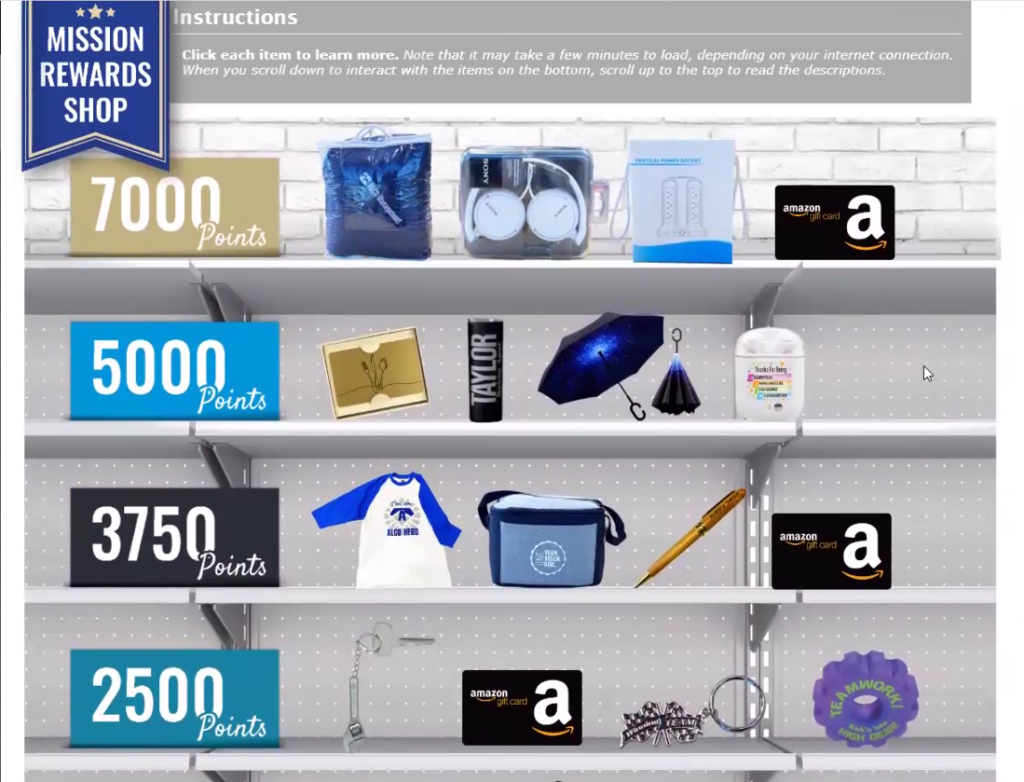
Future Goals and Measuring Success
We are continuously working on refining our implementation and adoption strategies. We understand that change takes time and persistence, especially when introducing a new training initiative. We aim to make SkillMill an integral part of our maintenance team’s daily routine, ensuring they see the platform as a valuable resource that empowers them to excel in their roles.
Moving forward, we plan to expand our internal testimonial videos, featuring more employees who have experienced the benefits of SkillMill. These videos will be powerful tools to inspire and motivate others to participate in the training program.
Additionally, we are exploring avenues to integrate SkillMill further into our existing processes and workflows by incorporating SkillMill progress reports into performance reviews and tying them to career development opportunities.
As we continue to see an increase in engagement and utilization of SkillMill, we are excited to explore the measurable impact it will have on our operations and ROI.
We are particularly interested in evaluating whether the implementation of SkillMill improves the overall time it takes to complete work orders and enhances the quality of work. We also plan to track employee turnover rates and assess whether the availability of comprehensive technical training contributes to employee satisfaction and retention.
Summary
Implementing and adopting SkillMill at ALCO Management has been a journey of perseverance, creativity, and collaboration. By strategically planning and executing our training initiatives, leveraging effective communication channels, and fostering a supportive learning environment, our ongoing efforts have steadily increased engagement, with more and more team members actively utilizing SkillMill every month to enhance their technical skills and knowledge.
As we continue to learn and adapt, we remain committed to empowering our employees with the tools they need to excel in their roles and drive the success of our organization.
 Ebonye Edwards
Ebonye Edwards
Director of Learning and Development, ALCO Management
Ebonye Edwards is a learning and development leader with over ten years of experience designing and executing adult learning training strategies that align with organizational goals. Her expertise includes curriculum and course design, project management, technology integrations, data analysis, business process design, compliance, and strategic planning.

